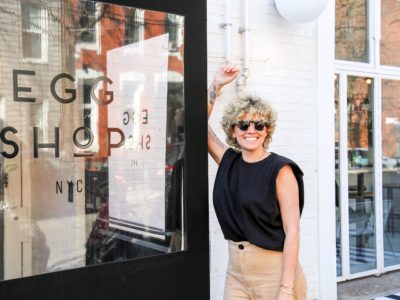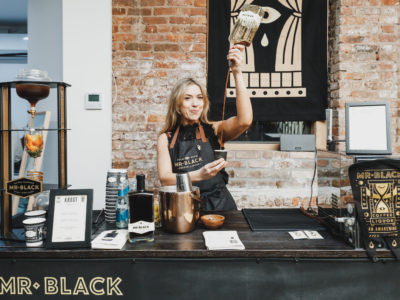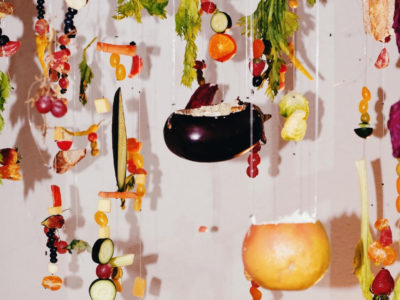
Zak Normandin, Co-Founder + CEO of Dirty Lemon
Zak Normandin, Co-Founder + CEO of Dirty Lemon

Fast gratification is key in today’s consumer markets and that fact is what fuels Zak Normandin’s drink company, Dirty Lemon. The line of health-conscious beverages is shaking up the way businesses create, communicate, and deliver.
INTERVIEW
WORDS BY: BILLY LYONS
Water, being essential for life, might seem like a simple proposition, but that’s underestimating the current thirst for beverages that go beyond hydration and instead offer a plethora of health benefits on top. Creating an upgraded elixir, has, for a generation of thirsty entrepreneurs, become big business. Enter Dirty Lemon, a direct-to-consumer beverage company whose sole method of communication with its customers is text messaging. We spoke with co-founder Zak Normandin at Dirty Lemon’s Manhattan headquarters in SoHo about his unique communication platform, fish scales, and where Dirty Lemon’s pop up bar concept The Drug Store plans to open its doors next.
Talk to me a little bit about your background. What made you want to get into the beverage business?
My background is in food and beverage; I created a kid’s food company back in 2008. We sold those products to Whole Foods and Target, and all of the bigger national retailers. I saw through that process a very antiquated way of basically getting a product available to a wider customer group. So if you’re a buyer and I’m presenting my product to you, I’m going to show you my product and say, “You should definitely put this in your stores, and if you approve it today, it doesn’t go onto to store shelves for another six to 12 months after the first approval.” I think consumers want products a lot faster now, they want it faster than the traditional distribution and retail structure allows for. When I sold that company in 2013, I started thinking through ways to do it differently, and landed on beverage.
I think consumers want products a lot faster now, they want it faster than the traditional distribution and retail structure allows for.
Tell me a little bit about the product here. I noticed Dirty Lemon is really transparent about the ingredients used, such as fish scales.
We’re a direct-to-consumer beverage company. All of our products have a lemon base, and then offer added benefits by way of different ingredients. We have charcoal in our Detox, we have collagen in our Skin and Hair which is the fish scales that you mentioned. We use sustainably sourced fish scales to source our collagen and then it’s hydrolyzed so they’re farm-raised fish, the meat of the fish is used for a food source and then scales are being used for collagen. It’s the most sustainable source of collagen you can buy.
What are you most passionate about when it comes to Dirty Lemon?
I think the most exciting thing to me is the platform and our ability to innovate very quickly and present new products to consumers. When I sold my last company, I started an agency and we were creating products for brands and for entrepreneurs. You’re always coming up with a different iteration of what someone else has brought to you; polishing and making it better. Then you hand that project off and sometimes you never know what happens with it. The follow on execution isn’t there. I think that with what we’re building, we have the ability to have a sales channel which we can take new ideas, new beverage concepts, and we’ll be able to sell very quickly to a wide audience and collect feedback.

Thinking back to growing up, what made you want to become an entrepreneur? What’s the most challenging part of it, and the most rewarding?
I didn’t really know about this world of entrepreneurship or food and beverage until much later in life. I was in the Coast Guard for four years after high school; I joined to be an engineer. I get out of the Coast Guard, I have children, I was looking for snacks for my kids, and saw just a really, I’d say limited selection of products on the shelf. I had been doing some consulting work for a woman who had a cookie company and saw the process of how you create a food product.
It was fascinating to me the idea of not just creating one of something like one home or something like that, but potentially creating millions and millions of the same item that could be enjoyed by many people. I think that was it.
Do you think transparency of ingredients is crucial in this age, even though it might turn away some customers?
Yeah, I’d say absolutely. I think we’re at an interesting place with food especially where people are really interested in trying new things. I think the overall awareness of what you put into your body and the impact that that has on the way that you look and you feel, is pretty well recognized by anyone at this point.
For us, we use a lemon-base for all of our products, and then we have adaptogens and herbs and botanicals that have been used in the naturopathic community for a long time for many different purposes. We’re adapting them for a more mainstream beverage I think if it was done in any other way it wouldn’t be an attractive option to consumers. I think transparency is huge, I think that it’s necessary for brands to be transparent and we look at our product as a way to be able to introduce new ingredients that they haven’t heard of before like ashwagandha or rhodiola which are two adaptogens that we’re using in beverages.
So talk a little bit about the research and bringing this to market.
We come up with a creative idea and present it to the legal team and say what can we do here. It’s pretty straightforward with what our limitations are, we’re selling a food and beverage product. It’s not a supplement. We’re not making claims. We’re actually starting to shift away from the functional claims or the functional naming process and starting to focus more on ingredients, to your point earlier of transparency. I think we have an innovative platform which allows us to test out new concepts, and come up with new ideas and present them to customers, and get their feedback in real time, which is the coolest thing about what we’re doing….We could come up with an idea right now, and say, “Let’s make a strawberry lemonade with pumpkin in it,” or something like that.

Avocado is very hot right now.
Yeah, avocado. We could have that out to consumers in 30 to 45 days; it’s very, very fast. In a bottle, ready to go, and selling through a direct channel of communication, which is over the platform that we built. We own this technology, and we’re the only company in the country that’s transacting with customers and has a direct line of communication with every one of our customers. Not by way of email, phone or anything like that, but through SMS. Where we know with relative certainty that every message we’re sending out is being read. That’s been proven, SMS is a very effective way of communicating with customers.
We own this technology, and we’re the only company in the country that’s transacting with customers and has a direct line of communication with every one of our customers.
Do you think your platform helps address skepticism, or at least communicate your brand ideas to those that are just dipping their toes in the water for the first time?
I think that the platform provides transparency, which gives people an access point to ask questions, to communicate with the brand in a very simple, streamlined way.
Can you describe that as well? I send a text?
Yeah, you send a text and you’re going to get a response back quickly. If you have a question about, for example, can I drink one of your products while I’m breastfeeding; a hypothetical example which we get a lot. We have a naturopath on staff that answers those questions. So you’re getting a medically validated response really quickly. I’d say medical feedback is all relative, but there certain areas where it’s like, yes, based on the information we have available to us, and the authorities in these specific fields we know that this is ok.

Cool. Switching gears here, can you tell us a little bit more about the Dirty Lemon pop-up we’re going to see and how that idea came to fruition?
We’ve had this pop-up for the whole summer, and it’s called The Drug Store. It’s basically a non-alcoholic cocktail bar. We have bartenders making homemade, handcrafted versions of all of our drinks, and then they’re also making new beverages, which we don’t have in the bottle format yet. We have a matcha, we have a rose lemonade, we’re doing an herb lemonade as well–which supports a local non-profit. This is our way to be able to test out with customers in an even more rapid format, in even more real time real time; we’re making them a drink and then we’re presenting them essentially in a bar. Then we could gage from them, “What do you think about the taste, what do you think about the flavor, what could we do to change this?”
With our matcha specifically, we’ve had such an overwhelming response from customers that we’re going to launch that into a bottle format. I would say the data and the feedback that we’ve collected at the space, really brings the entire direct consumer offering full circle.
My family basically owned pharmacies for a very long time. I remember one of the pharmacies was like a drug store, but with a soda fountain, and I remember going in there with my mom as a kid, and we would sit at the bar–it wasn’t an alcoholic bar–but they would be making milkshakes and stuff like that. That whole idea of having this intimate relationship with someone on the other side of the bar, and watching a milkshake being made, is I think something that’s timeless. This is an adult lemonade stand of sorts, you guys will see the energy and how we’ve created the space.
One of your drinks is Detox and I think people think, is there a right or wrong way to detox? What do people get wrong about the concept of detoxing?
Activated charcoal, which is the main ingredient in our Detox, it’s the oldest pharmaceutical remedy in history. The Egyptians used it to settle their stomachs, it’s used in hospitals every single day for detoxification. What we’re doing with our Detox is including a small amount of activated charcoal and then we use ginger and dandelion root, to provide a gentle, daily detox that’s not a cleanse. … We created Detox as a way to simplify all that, and we said, “Let’s let the ingredients do all the work,” and then you live your life the way you’re going to live it. We can’t control every element of your life, what we can do is formulate a beverage that has very powerful ingredients that work with your body.





